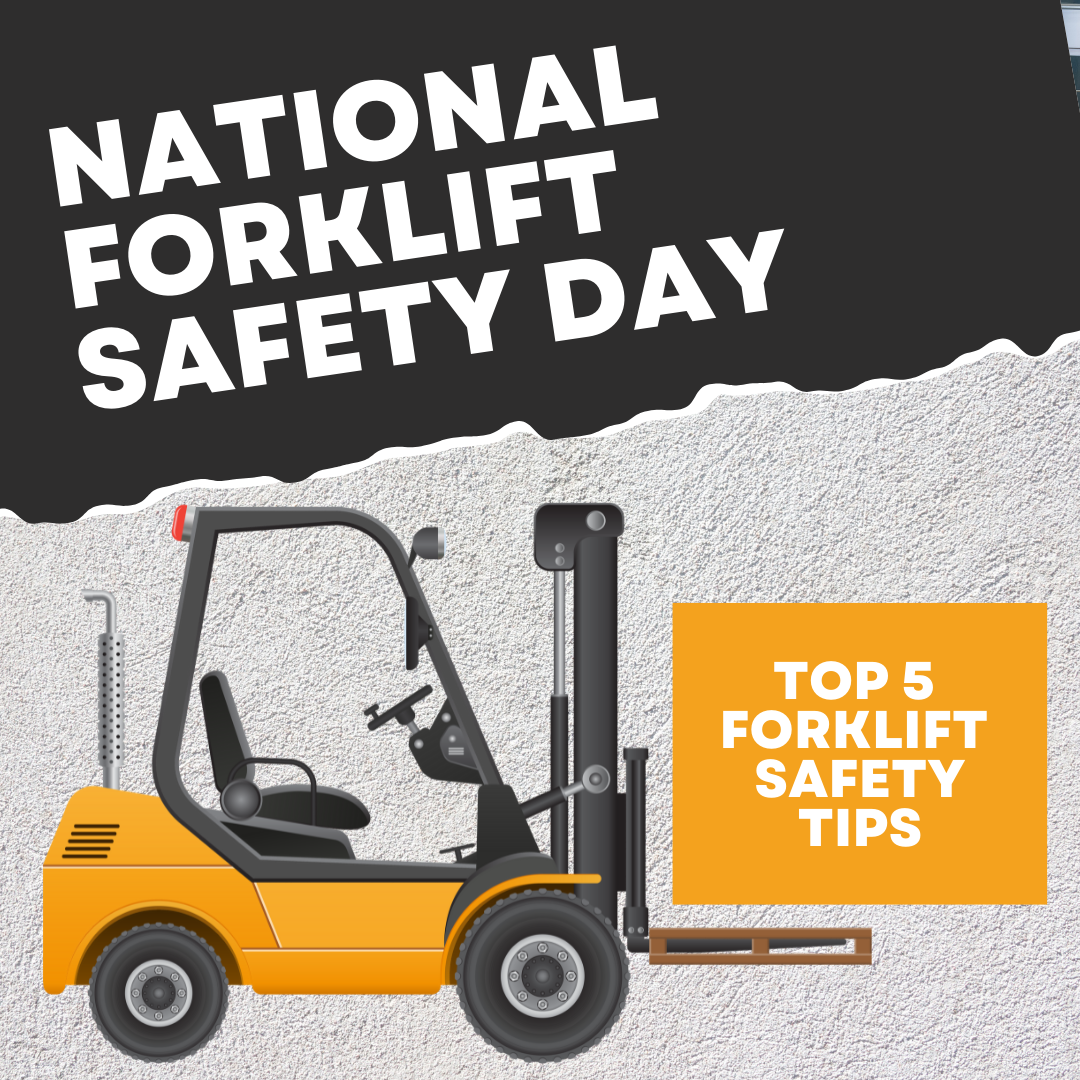Forklifts, also known as powered industrial trucks, are an integral part of the warehouse environment. They are compact and maneuverable, and they allow us to transport heavy loads quickly. Most warehouses and other industrial environments’ operations would come to a screeching halt if forklifts suddenly disappeared.
Forklifts are very powerful tools - but with all that power comes a lot of responsibility. National Forklift Safety Day, created by the Industrial Truck Association, encourages us to commit to our education about safe forklift operation.
According to OSHA, from 2011 to 2017, 614 workers lost their lives in forklift related incidents and more than 7,000 nonfatal injuries with days away from work occurred every year. To help combat forklift accidents, we put together this list of proven safety tips from industry experts.
- Our first defense against forklift accidents is proper training. By law, no one under the age of 18 may operate a forklift, nor can anyone over 18 if they are not certified. Operators should be trained on the specific vehicle they will be using in the workplace as well as any issues specific to the workplace environment they are in. OSHA recommends evaluating an operator’s forklift knowledge and performance at least once every three years.
- Keep loads as low as possible when in motion. Forty-two percent of forklift fatalities were the result of the operator attempting to jump out of a tipping forklift. Keeping loads low helps maintain balance and stability of the vehicle, avoiding tip-overs. Additionally, operators should wear their seatbelts and not attempt to leave the forklift if it tips over.
- Inspect forklifts daily. Forklifts should be checked before use to ensure they are in working order, including the horn, lights, tires, brakes and any other required checks. Operators should also check for any hydraulic leaks to avoid major failures. Any issues with the vehicle should be reported right away so that they can be addressed properly.
- Drive in reverse when transporting full stacks of material. Driving with an obstructed view could lead to collisions, falling load, forklift tip-over and more. Always keep a clear view, and if your load obstructs your forward view, drive in reverse.
- Use your horn frequently. According to Millwood’s safety team, forklift operators should honk their horn every three to five seconds when backing up, exiting trailers, placing stacks of pallets on repair conveyors and driving around blind corners. Honking the horn alerts pedestrians and anyone nearby that you are approaching.
These tips are just the beginning when it comes to forklift safety. As noted above, proper training is the number one preventer of forklift accidents and must be taken seriously by anyone interested in becoming a forklift operator.
Thank you to Millwood’s safety team for their contributions to this post and for their commitment to the safety of our team members on a daily basis.






